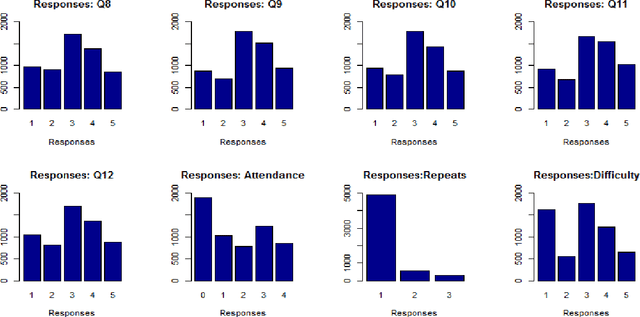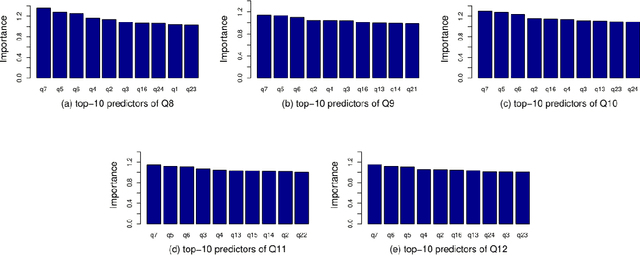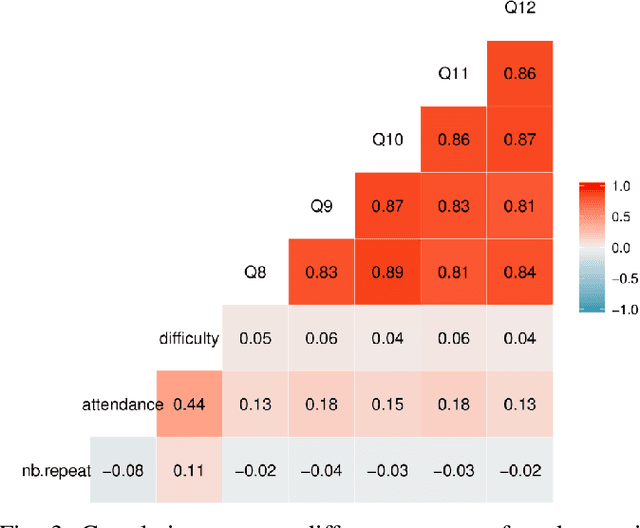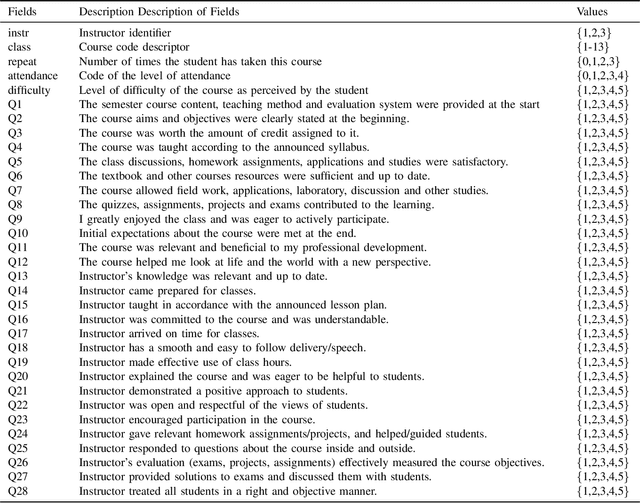Farzana Afrin
Mining Student Responses to Infer Student Satisfaction Predictors
Jun 14, 2020



Abstract:The identification and analysis of student satisfaction is a challenging issue. This is becoming increasingly important since a measure of student satisfaction is taken as an indication of how well a course has been taught. However, it remains a challenging problem as student satisfaction has various aspects. In this paper, we formulate the student satisfaction estimation as a prediction problem where we predict different levels of student satisfaction and infer the influential predictors related to course and instructor. We present five different aspects of student satisfaction in terms of 1) course content, 2) class participation, 3) achievement of initial expectations about the course, 4) relevancy towards professional development, and 5) if the course connects them and helps to explore the real-world situations. We employ state-of-the-art machine learning techniques to predict each of these aspects of student satisfaction levels. For our experiment, we utilize a large student evaluation dataset which includes student perception using different attributes related to courses and the instructors. Our experimental results and comprehensive analysis reveal that student satisfaction is more influenced by course attributes in comparison to instructor related attributes.
 Add to Chrome
Add to Chrome Add to Firefox
Add to Firefox Add to Edge
Add to Edge